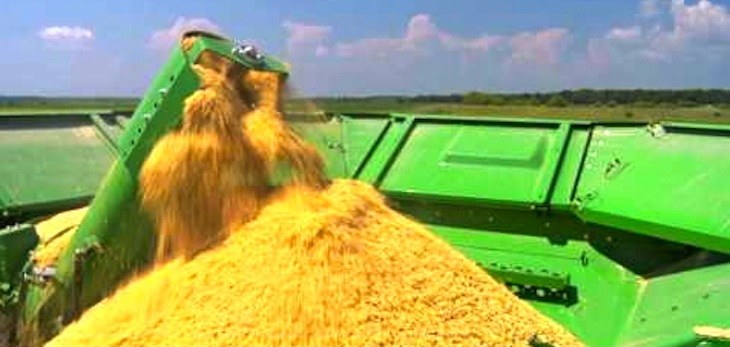Executive Q&A: Betsy Ward, President & CEO USA Rice Federation
by February 8, 2019 3:07 pm 804 views

In late December 2018, Congress and President Donald Trump completed work on the $867 billion federal Farm Bill, putting in place the five-year framework for the nation’s agricultural policy. The five-year federal agricultural policy and spending measure includes a provision that legalizes industrial hemp and does not include work requirements for the Supplemental Nutrition Assistance Program (SNAP), also known as food stamps, a contentious point of debate that bottled up the bill for months.
Among the highlights touted by federal officials are improving risk management programs; protecting crop insurance; funding trade development; and investing in the future with funding for agri research and beginning farmer programs.
In early January 2019, Betsy Ward, president and CEO of USA Rice Federation, was in Stuttgart for a half-day conference to help rice farmers understand the new federal policy as well as to hear from other state and national speakers. Talk Business & Politics CEO Roby Brock visited with Ward at the Stuttgart conference to learn more about some of the lesser-known aspects included in the Farm Bill.
Roby Brock: The Farm Bill has an interesting marketing provision in it that will allow farmers in Arkansas to do something in Cuba that they haven’t been able to do before. Tell me more about that.
Betsy Ward: Overall, we’re really pleased with the Farm Bill. We worked a long time to basically maintain the provisions that we had on the 2014 Farm Bill, which worked very well for rice. But one of the tweaks that they made was there’s a program that’s funded through the Farm Bill, called the export promotion programs that are managed by USDA. They tweaked it to allow some funding to be used to promote in Cuba, which is kind of interesting since we haven’t really been doing much in Cuba under the Trump administration.
Brock: At the same time, there still is the credit restriction that has been in place, which has hampered efforts to try to do deals with Cuba on top of the fact that there’s still U.S. policy against it. How does all of that work together?
Ward: You’re right. They need cash. They [Cubans] don’t have a lot of money and so the inability of our banks to basically loan money, to give credit to Cubans really restricts their ability to buy a lot of U.S. ag products. They want to buy our rice and corn and chicken and all those things, but the ability to at least go down and promote our products is a step in the right direction. We’d like to see, obviously, more overall opening and Congressman Rick Crawford has been a real champion of that here in Arkansas. We appreciate all he’s done.
Brock: At the time of our talk, we’re in the middle of a federal government shutdown. We also continue with a trade war with China in which both countries are placing tariffs on one another’s products. Eventually, something will change on both fronts. When that does, what opportunities might we see for Arkansas rice producers in China as a result of previous efforts?
Ward: So we’ve been working on market access to China for over 10 years. The issue had been the lack of something called a signatory protocol, which we negotiated an agreement with China last July. It was signed. Probably within a few days of it being signed was when the Trump administration announced the tariffs on steel and aluminum and then other products from China, so the Chinese stopped the forward progress that we were making on rice. There has been a renewed effort. There’s a delegation trying to relieve some of the pressure on agriculture, soybeans in particular, but also rice, is at the top of the list. So we are fairly optimistic that the Chinese will allow rice imports now, and so we’re just looking for the first offer to come. They basically announced between Christmas and New Year’s that they were open for business for rice. Now, they need to actually buy something. But this is potentially a huge market for all of us.
Brock: How big?
Ward: Well, what’s big in China, what’s big in the United States are two different things, but they import a lot of rice. It’s kind of surprising. They grow more rice than any other country in the world, but they also stockpile a lot of rice for food security reasons, so they’ve been importing tremendous amounts. We think even if it’s a couple hundred thousand metric tons, that will be a shot in the arm for the industry. That’s our hope, is a few hundred thousand metric tons to begin with, and then we’ll see.
